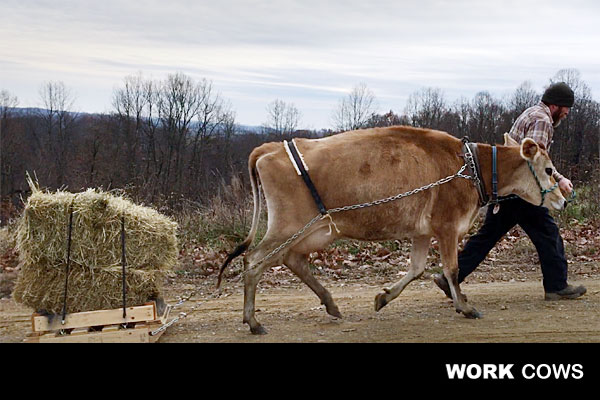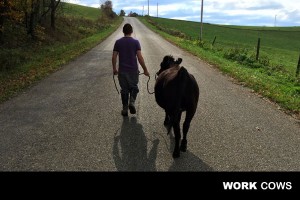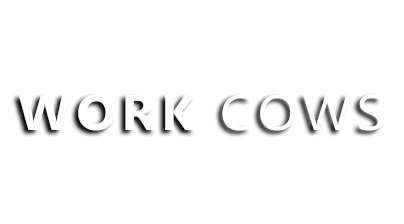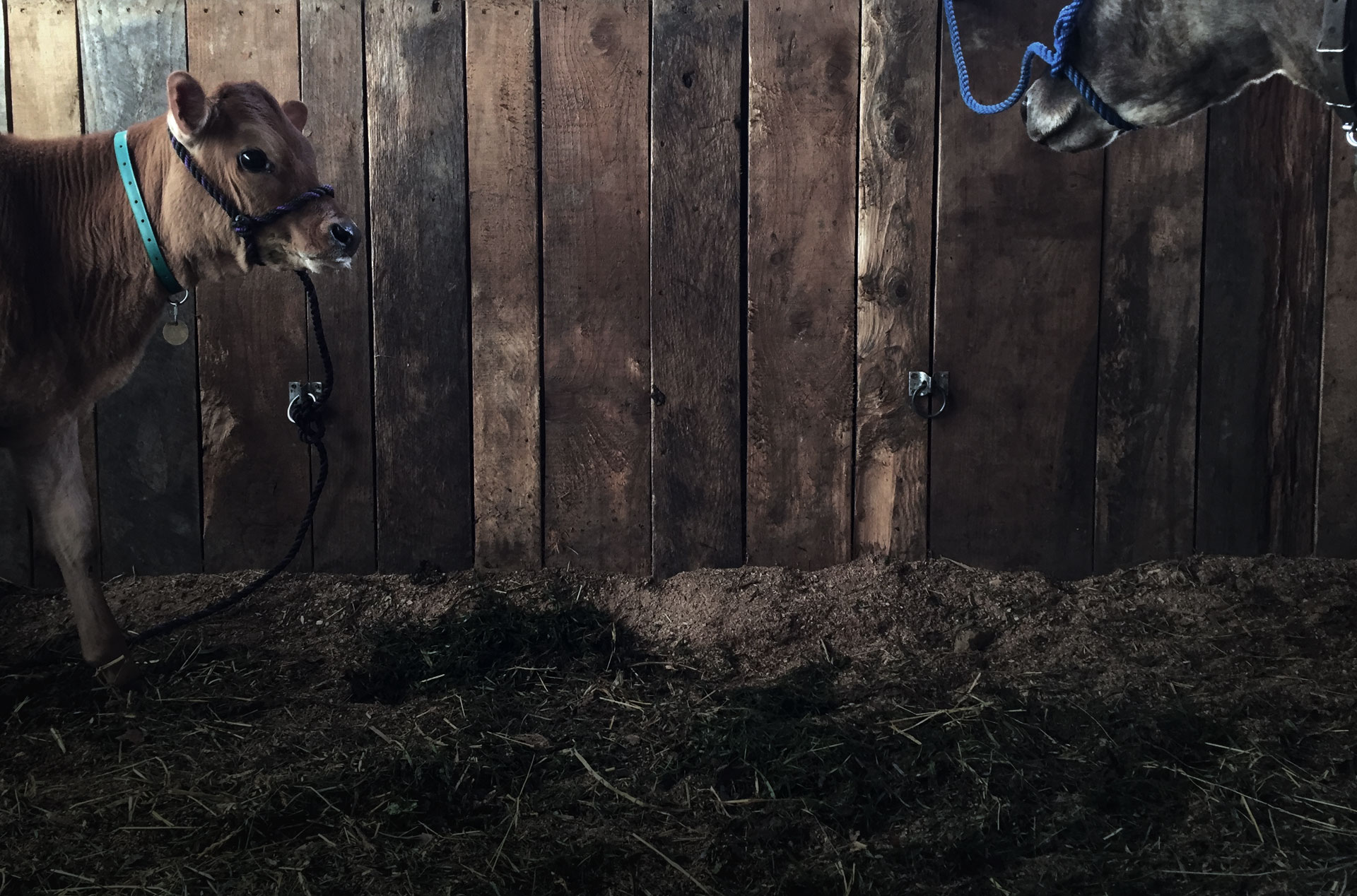
01 Dec Working Bovines on the Farm: What Every Farmer Should Consider
Farming, especially in a small family farm situation, is often a solitary business. Even when the farm is able to support the entire family without employment off the farm, the amount of work to be done each day often means that adults and any children old enough to handle some of the load are usually busy with their own tasks or attending school.
 This means that even simple tasks that require the help of a second human to lift, hold or carry something are often postponed until someone is free to help, which is hardly an efficient way to work. If you have one or more dairy cows on your farm, you may already have a source of willing, dependable help for many of these chores.
This means that even simple tasks that require the help of a second human to lift, hold or carry something are often postponed until someone is free to help, which is hardly an efficient way to work. If you have one or more dairy cows on your farm, you may already have a source of willing, dependable help for many of these chores.
Utilizing the Family Cow on the Working Farm
Unlike beef breeds that are rarely handled, the dairy cows kept on small farms to supply the family with milk and beef are usually already used to being handled on a daily basis. Most are led into and out of milking stanchions twice a day and are accustomed to the farmer working closely with them to milk them by hand or machine, as well as attending to necessary grooming and care routines.
Most dairy cows actually seem to enjoy this contact with their caretaker, as evidenced by common positive behaviors such as:
- approaching the farmer willingly
- standing patiently while being bathed, brushed or groomed
- learning to willingly pick up or move their feet
- accepting a halter without balking and willingly being led by the farmer
- observing the farmer with obvious interest and curiosity whenever they are nearby
- vocalizing when the farmer comes into sight
- waiting at the barn, gate or other designated spot as milking time nears
- allowing the farmer to handle and care for their calf without fear or distrust
Understanding the Cow’s Capabilities
When considering the possibility of using a dairy cow to assist with work on the farm, it is important to first understand her capabilities and limitations. While it is obvious that your cow is not going to be able to hand you nails while you hammer boards onto the side of the barn, it is very possible that she can be trained to help you haul and lift heavy items, such as boards, timbers or hay bales, by using her weight and strength to manipulate a pulley or block and tackle system.
With careful training and patience, here are just a few ways in which a well-behaved dairy cow might provide much needed assistance on the family farm:
- Dragging a skid or pulling a cart or wagon to assist with feeding other animals, hauling water, manure, materials, trash or assisting with the harvesting in the garden or orchard.
- Carrying a pack filled with supplies or tools when working away from the house or barn for several hours.
- Helping to skid small logs from the woods destined to be cut into lumber or firewood.
- Providing faithful companionship to help make mundane daily tasks more interesting and rewarding.
In all probability, you, like most every person who farms, have probably found yourself in a situation where the strength and dedication of a willing assistant would have been very much appreciated. Have you considered that the same dairy cow who provides your family with milk, meat and a ready source of organic fertilizer might also become a valued source of help on your farm?
Taking Advantage of the Cow’s Natural Skills
In addition to helping carry, pull and haul around the farm, your dairy cow also has a natural skill set that can be very helpful on the farm. Cows spend a good portion of each day grazing on the various grasses and forages in their environment to provide nourishment to make milk or maintain body condition. Farmers can take advantage of this behavior, for the benefit of both the farm and the cow.
Cows will happily help to clear unwanted vegetation through natural grazing and browsing, if given the opportunity. While the farmer is completing common farm chores such as cutting firewood, fixing fences, moving temporary electric fencing or piling brush in areas that have excess or unwanted vegetation, their working bovine companion will relish being given the opportunity to dine upon this unwanted vegetation while she waits. The farmer reaps the benefit of having these areas cleared over time with no expenditures of fuel or labor on their part and the cow enjoys a lush, nutrient rich meal.
Are You Ready to Consider a Working Cow for Your Farm?
Now that you understand just how useful and enjoyable it can be to have a working bovine on your farm or homestead, you may have questions about what the process entails. We have perfected the process of choosing dairy heifers that exhibit the disposition, intelligence and willingness to learn what is necessary to become a trusted working cow. Then we spend months training these young cows and honing their skill sets to ensure they perform their duties honestly and faithfully.
A working dairy cow is obviously not a good fit for every farm or farmer, but for many, the presence of one that has been trained to enjoy a trusting relationship with the farmer and provide more than just milk and beef can be a farmer’s best friend.

